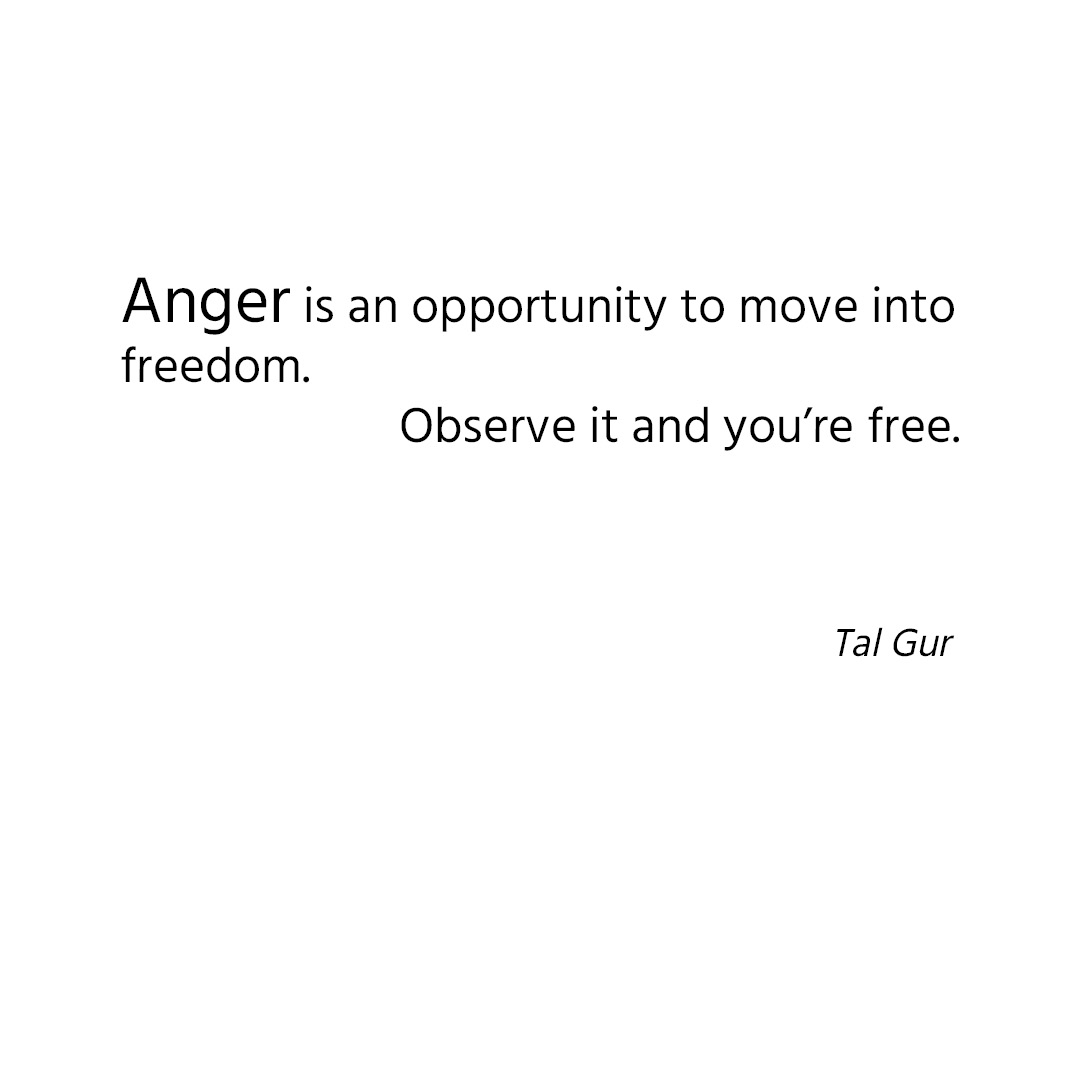Anger is an opportunity to move into freedom. Observe it and you’re free.
Imagine anger as a wild, untamed river, its waters raging and turbulent. It's easy to be swept away by its powerful currents, losing control and direction. Now, picture yourself standing on the bank of this river, watching it flow. From this vantage point, you're safe from its pull, able to observe its power without being consumed by it. This is the essence of the quote: "Anger is an opportunity to move into freedom. Observe it and you're free."
Anger, much like the river, is a natural and powerful emotion. It surges up within us in response to frustration, injustice, or pain. The initial reaction for many is to either suppress it, letting it simmer beneath the surface, or to let it explode, causing havoc. Both approaches can lead to harm and regret. But there's a third path, one less traveled: observing our anger, recognizing it for what it is, and then choosing how to respond.
Observing your anger means taking a step back, much like stepping onto the riverbank. It's about giving yourself a moment to breathe, to recognize the emotion without immediate reaction. This pause is powerful. It's a moment of choice where freedom lies. Instead of being controlled by your anger, you control it. You see it, acknowledge it, and then decide how to use it constructively.
Consider the story of a sculptor working on a block of marble. If he strikes the marble in frustration, the chisel might slip, ruining the sculpture. But if he pauses, channels his frustration into focus, and then resumes his work with controlled precision, he can create a masterpiece. His initial anger becomes an opportunity to improve, to refine, to create. This is the freedom the quote speaks of: turning what could be destructive into something constructive.
In real life, this philosophy can transform relationships, careers, and personal growth. Imagine you're in a heated discussion with a colleague or a loved one. The anger rises, and you feel the urge to lash out. But instead, you pause, observe the anger, understand its source, and then choose to respond in a way that addresses the issue without damaging the relationship. This doesn't mean suppressing your feelings but rather expressing them in a way that leads to understanding and resolution.
The freedom comes from not being a slave to our immediate reactions. It's about recognizing that we have the power to choose our response, turning a potentially negative explosion of anger into a constructive dialogue or action. This is how observing anger can lead to freedom. It liberates us from the cycle of reaction and regret, allowing us to live more intentionally and peacefully.
As we navigate the complexities of life, let's remember the power of observation. Let's use our anger not as a weapon to wield or a burden to carry but as a signal to pause, reflect, and choose a path forward that leads to growth and freedom.
Now, reflect on this: When was the last time you observed your anger and chose a response that led to freedom, rather than reacting immediately?
*To obtain more inspiration and motivation to achieve your goals, you definitely want to check out my extensive list of growth goals. This page contains SMART goal ideas that can help you establish new aspirations and attain greater heights in your personal growth journey. I utilized this page myself to create my own list of 100 life goals, which I dedicated a decade to pursuing.
Chief Editor
 Tal Gur is an author, founder, and impact-driven entrepreneur at heart. After trading his daily grind for a life of his own daring design, he spent a decade pursuing 100 major life goals around the globe. His journey and most recent book, The Art of Fully Living, has led him to found Elevate Society.
Tal Gur is an author, founder, and impact-driven entrepreneur at heart. After trading his daily grind for a life of his own daring design, he spent a decade pursuing 100 major life goals around the globe. His journey and most recent book, The Art of Fully Living, has led him to found Elevate Society.























